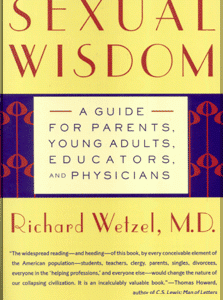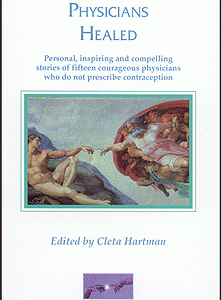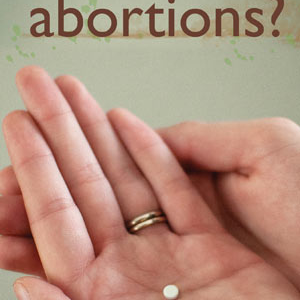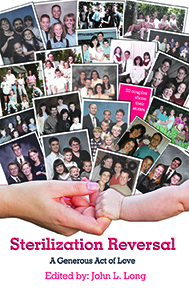Archive for April, 2016
Women share birth control horror stories with #MyPillStory hashtag
April 6, 2016 (LifeSiteNews) – Accounts of the Pill’s negative side effects have been trending on Twitter, with a stream of women coming forward to share their chemical contraception horror stories gaining notice in the unlikely forum of the feminist press.
Women’s magazines have long championed the birth control pill as a liberator of women, but the #MyPillStory hashtag detailing the Pill’s medical downside has gotten coverage from a number of such outlets in the U.S. and the UK, such as Glamour, Huffington Post, and Stylist Magazine.
Twitter accounts of devastation from the Pill began March 31 and have continued since, one sharing, “T1Diabetic and the pill messed up my sugar levels so bad I developed an abscess, my sight damaged and had to leave college.”
The story took off after UK journalist Holly Brockwell tweeted her frustration over fighting with England’s National Health Service’s (NHS) to sterilize her, according to Glamour. She wanted the procedure because the pill caused her dizziness, vomiting, skin problems, bleeding and pain. Brockwell had either been told to take the Pill or that her boyfriend could have a vasectomy.
“Do you know what it’s like to bleed for a month?” Brockwell challenged a male on social media who questioned her effort to be sterilized. “Have you spent mornings off work because you’re throwing up from hormones you don’t need in your body? Have you called the NHS direct because your leg feels weird and you’re worried your high-risk pill has given you a fatal blood clot?”
“One pill made me bleed so much for so long that I was on iron tablets for months afterwards,” she’d also stated.
“I can’t take the pill because it gives me migraines, mood swings & weight gain,” was the reply from Kate Bevan, who came up with the hashtag.
Brockwell was clear in her posts she is not anti-pill; instead she opposes people telling her dismissively to take the Pill, particularly men.
But the campaign opened the door to the difficulties caused by chemical contraception, one Twitter user offering, “One pill I took … not only made my body feel alien but then started making me violently sick once every hour.”
The physical complications from oral contraceptives are well-documented, such as risk of blood clots, hair loss, greater chance of Crohn’s Disease and brain shrinkage, breast cancer, hardening of the arteries, increased risk of glaucoma and cervical cancer.
Some of the #MyPillStory posts demonstrated this, one stating, “Headaches, severe mood swings, nausea, vomiting and the autoimmune issues I have were all gifted to me from hormonal bc.”
But many also showed how the Pill is related to mental and psychological maladies as well.
“#MyPillStory depressed, lethargic, dissociated. sleeping for over 12 hours a day and still exhausted. reluctant to ever try it again,” one stated.
“I dealt with crushing depression and suicidal ideation for days in a row not realizing what was happening,” came from another, and still another saying, “On pill for a year before I realised it was why I was experiencing crippling gender dysphoria. By then I’d already quit my job.”
The disturbing accounts continued, showing a pattern.
“Took the pill when I was 18 cried everyday for a year, high anxiety, no libido, no idea what was going on until I stopped,” one person tweeted. Another said, “It made me lose my mind. I wasn’t myself. Suicidal and scared. Seems I’m not alone.”
Brockwell recently learned she will get her sterilization from the British government in the next few months, but her personal campaign to avoid pregnancy ultimately shed light on the dangerous chemical option millions of women use to achieve the same.
“This whole thing is straight-up terrifying,” one of her tweets stated. “Can’t wait to get off the pill.”







The “Multifaceted Gem” of Pope Francis’ Amoris Laetitia
http://aleteia.org/2016/04/08/the-multi-faceted-gem-of-pope-francis-amoris-laetitia/
Karee Santos
Mining the theology of the Body-inspired wealth of the post-synodal apostolic exhortation “The Joy of Love”
After nearly 18 months of speculation, the other shoe has dropped, and Pope Francis has finally issued his apostolic exhortation on the 2014-15 Synod of the Family. In true Francis fashion he has issued a document that he hopes will challenge everyone (para. 7). Against calls for “general rules” or “immoderate … change,” he instead articulates a philosophy of accompaniment, which depends not on rules but on relationships (para. 2). In particular he urges us to cherish the good in every family situation, no matter how irregular (paras. 77, 292).
Apart from sparking an inevitable firestorm of controversy around hot-button issues, Amoris Laetitia (The Joy of Love) also directs stirringly beautiful words of encouragement and inspiration to married couples in line with the teaching of Pope St. John Paul II. Commentators have long wondered and worried if the thoughts of John Paul II would be reflected in this newest Church pronouncement on the family. The reading guide for bishops, presented earlier this week, reassured clerics that Amoris Laetitia was heavily inspired by the Theology of the Body, the former pontiff’s groundbreaking discourses on marriage and sexuality.
Amoris Laetitia combines brilliant scriptural analysis akin to John Paul II’s with a healthy dash of Francis’ plain-spoken, homespun wisdom. Its praise of sexual and erotic love echoes Pope Benedict XVI in Deus Caritas Est (God is Love). Pope Francis’ chapter 1 on the biblical basis of marriage tracks the journey of Adam and Eve from solitude to togetherness, and then to suffering and finally redemption through Jesus Christ (paras. 9-22), just as John Paul II did in the opening addresses of the Theology of the Body.
The two “central chapters” of Amoris Laetitia, and the ones in which Pope Francis speaks most directly to married couples, are chapters 4 and 5 (paras. 6-7). Chapter 4 leads us line by line through St. Paul’s much-beloved Hymn to Love in 1 Corinthians 13, while chapter 5 focuses on the fruitful love that is “a symbol of God’s inner life” (para. 11). These chapters offer the following strikingly practical insights on how to live the married vocation to the fullest.
See each other (para. 128). “We often hear in families: ‘My husband does not look at me,’” or “‘My wife no longer looks at me; she only has eyes for our children,’” notes Pope Francis. Husbands and wives must not withhold a “look of appreciation,” a gaze of “contemplative love,” even when our spouse has become “infirm, elderly or physically unattractive,” he continues. “Much hurt and many problems result when we stop looking at one another.”
Listen to each other (paras. 100, 137, 139). “How often we hear complaints like: ‘He does not listen to me,’” adds Pope Francis. Husbands and wives show love when we “listen patiently and attentively,” exercising “the self-discipline of not speaking until the time is right.” Our ability to listen depends on whether we cultivate “interior silence” and an ability to acknowledge the worth of the other person and their perspective. “The combination of two different ways of thinking can lead to a synthesis that enriches both,” he wisely observes.
And when we finally speak, “words should be carefully chosen,” he says. “Those who love are capable of speaking words of comfort, strength, consolation, and encouragement … not words that demean, sadden, anger or show scorn.”
Touch each other (paras. 148, 157). Authentic married love will “welcome with sincere and joyful gratitude … a caress, an embrace, a kiss and sexual union,” says Francis. The search for sexual pleasure should not resemble an obsessive insatiability, however. “Excess, lack of control or obsession with a single form of pleasure can end up weakening and tainting that very pleasure and damaging family life,” the pope warns.
Let nothing rob you of the joy of parenthood (paras. 168, 171, 179). “Don’t let fears, worries, other people’s comments or problems lessen your joy,” Pope Francis encourages us. Children are a gift from God, and the conception of each child marks a moment when “the Creator’s eternal dream [of that child] comes true.” The pope urges married couples, particularly those who struggle with infertility, to adopt or provide foster care, “offering the gift of a family to someone who has none.”
These nuggets of practical wisdom are a small fraction of the treasures to be found in Amoris Laetitia. The broad sweep of the document covers theological issues like the sacramentality and indissolubility of marriage, economic issues like migration and unemployment, and pastoral issues like marriage preparation, the training of priests and care for the divorced and remarried. With reason, Pope Francis refers to the synod proceedings as a “multifaceted gem” and asks us to devote more than “a rushed reading” to his post-synodal exhortation (paras. 4, 7).
Para español haga click aqui
Posted in News & Commentary | No Comments »